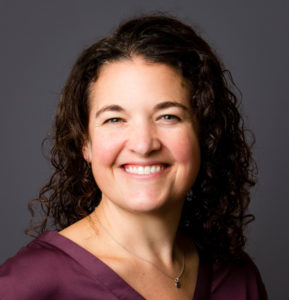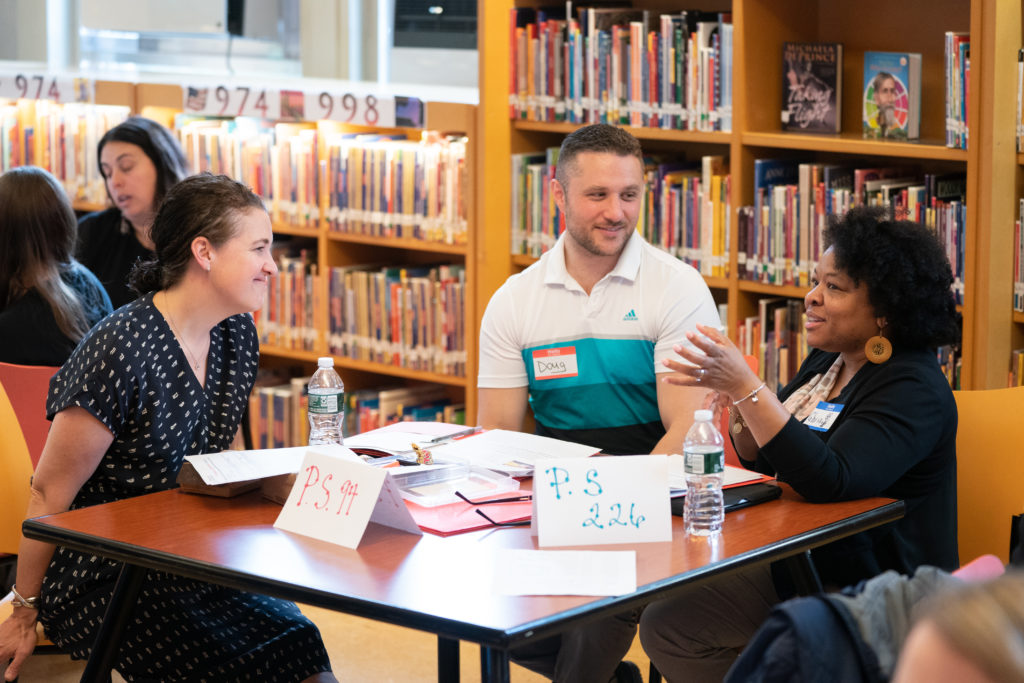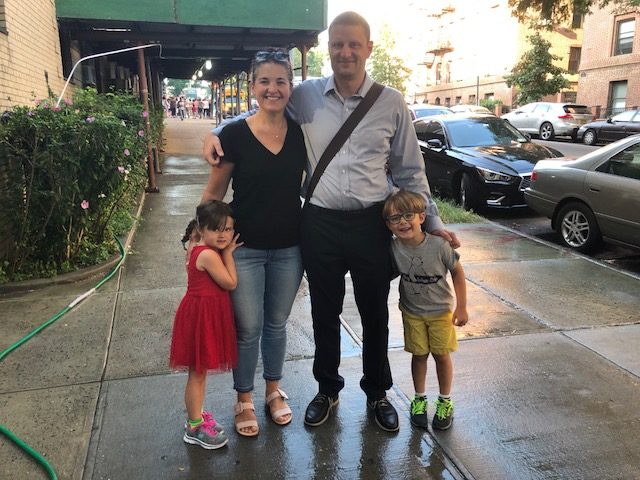Staff Spotlight: Brigid Ahern

Brigid Ahern became President and CEO of Turnaround for Children in June 2018. From 2014-2018, she served as Turnaround’s Chief External Affairs Officer, where she oversaw communications, development, policy, systemic impact and the executive office. Before Turnaround, Brigid worked at Uncommon Schools and the New York City Department of Education.
THE 180: You’ve worked in education for quite some time – Turnaround, Uncommon Schools and the New York City Department of Education (DOE). Had you always known you wanted to work in education?
BRIGID AHERN: No, but I’ve always been driven by the same set of core values in my life. First, I’ve always believed in the importance of relationships and their power to help individuals thrive. Second, I’ve always wanted to fight for justice and equity; and I feel that I must use the opportunities given to me to do that. Finally, I’ve always felt a deep responsibility to leave the world in better shape than I found it. That is something I learned from my dad. When I started working in education, I was confounded by the fact that we evaluate kids based on test scores; I believe what we need in the world is people who are flexible, who can relate to each other, who have empathy and can address complex problems. What’s kept me in education is my belief that there’s a more comprehensive way for us to define student success.
THE 180: What brought you to Turnaround?
BRIGID AHERN: Turnaround’s work revolves around the power of relationships and the potential that all people have, both of which are deeply important to me. Turnaround’s acknowledgement that many integrated forces shape children’s development, and that we can’t focus on one isolated solution or intervention, drew me in as well. Multiple factors play a role in a child’s development. We must understand and honor context, which is the environments, relationships and experiences that impact a child’s developmental trajectory.
Another thing that compelled me was my first meeting with Pam (Pamela Cantor, M.D.). I remember her saying, “This work isn’t easy. It’s complex and it’s hard, but that is precisely why we need to do it.” Those words resonated with me and inspired me.
THE 180: You took over the role of President and CEO from Pamela Cantor, M.D. in June 2018. How was your first year in this new position?
BRIGID AHERN: It’s been the greatest learning experience of my life! I’ve learned so much from our unbelievably talented and committed staff, from Pam, who continues to be a great partner, our Board of Directors, and the partners we work with. Looking toward what’s ahead, I’m thinking about how the field is converging toward whole child development (a focus on the overall development of a child, including social, emotional, motivational and cognitive skills), how Turnaround contributed to that shift, and what Turnaround can do with our leading edge to help schools prepare more students across the country for the lives they choose.
THE 180: What has been your proudest moment thus far as CEO?
BRIGID AHERN: My proudest moment was listening to Dr. Melissa Kim (Deputy Chancellor of Social, Emotional, and Academic Development at District of Columbia Public Schools) speak about how Turnaround’s work is guiding her vision for DC Public Schools (DCPS) at the 2019 ASU+GSV Summit in California. During a panel discussion with leaders from Edutopia, Mind Research Institute and LEAP Innovations, Dr. Kim remarked that Turnaround has “demystified the magic” of what’s needed to transform a school. She also mentioned how Turnaround’s schoolwide environmental assessment tool has allowed DCPS to drill down to what is working and what is not. I remember sitting in the audience watching her and being struck by how powerful it is when people who are leading schools and systems acknowledge the work of Turnaround.
THE 180: I can imagine that must have been a moment of great validation! What is something you’ve learned from your work at Turnaround that you want more people to understand and share?
BRIGID AHERN: Most schools were not designed based on the science of how children learn and what can impede or facilitate that learning and development. By starting with the goal of designing schools that develop whole children, we are changing the conversation around the policies, research and practices that we need to get there.
Finally, I would like more people to understand that we operate in an inequitable system that systematically prevents many students from having an equal chance at success. Education is one of the levers that can create a more equitable society. If we design schools to develop the whole learner from any starting point, we can create greater equity and unleash all students’ potential.
THE 180: What do you think it takes for children to succeed?
BRIGID AHERN: I don’t believe it’s just one thing. I often ask myself, “where would we be if all children had access to favorable conditions in schools, and if every student was seen as an individual with endless potential for success?” The educational psychologist Benjamin Bloom said it best, “What any person in the world can learn, almost all persons can learn if provided with appropriate prior and current conditions of learning.”

Pictured left to right: Brigid Ahern with Assistant Principal Doug Manzella and Principal Gloria Darden from P.S. 226
THE 180: What makes Turnaround’s partnerships with schools and school systems unique?
BRIGID AHERN: One of the things that I’ve found most fascinating over the past few years is understanding how much we know about how kids learn and how little of that gets translated to the people who are on the front lines doing the work. The gap between what’s known in science and how it’s applied in schools to position leaders and teachers to do the work that they most want to do is profound.
Turnaround’s partnerships are unique in many ways, but I’ll focus on three. First, Turnaround uses a diagnose and prescribe approach to understand where schools and systems are on the path to effective whole-child development, enabling us to provide targeted interventions that meet partners’ needs. Second, Turnaround’s interventions – our tools and services – are integrated, not just focused on environments, relationships, or skill and mindset development. Instead, we focus on all three together, because we know that they are all necessary to create optimal conditions for learning. Third, Turnaround’s tools and services are grounded in both cutting-edge science on how children learn and develop and 17 years of practice in schools and systems across the country.
THE 180: Throughout our conversation, you’ve mentioned the power of positive relationships. Has there been a positive relationship in your life that has had an impact on you?
BRIGID AHERN: My relationship with my dad, who passed away last year, had a profound impact on me. He and my mom created a safe and supportive home environment and were very attuned to what each of their kids needed as individuals, which I know now is what children and students need to thrive. Also, my relationship with my husband, Ryan, has helped me understand the power of unconditional love and support.
THE 180: You’re the mom of twins, Quentin and Natalie. What do you want for your own children that translates into what you want for all children?
BRIGID AHERN: What I want for my own kids is what I want for all kids – that they have the experiences and supports they need to live meaningful lives, that they stand in their own identities with confidence, and that they believe in creating a world that is more just than what they found. I want them to thrive. I deeply believe that every child has so much potential and my hope is that every child has the opportunity to realize that.


Share This Story